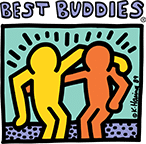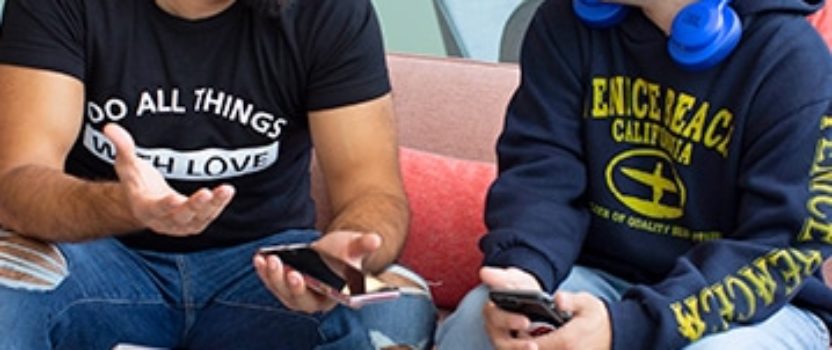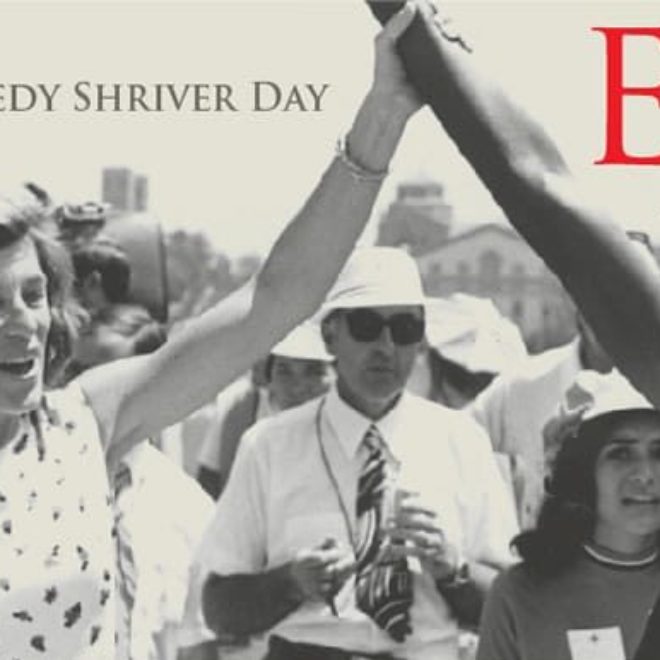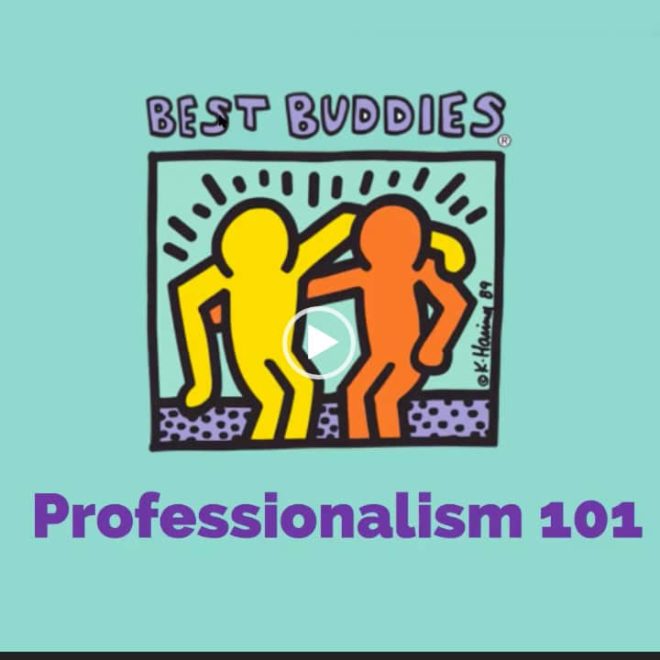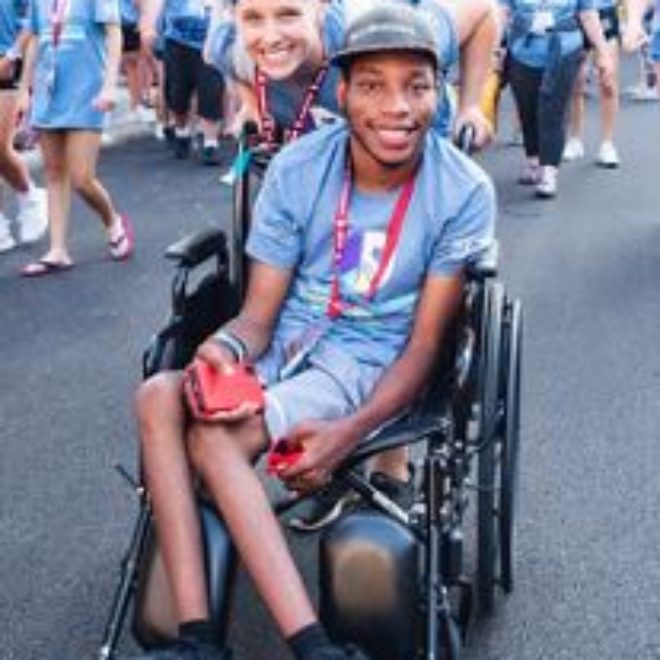Your Disability Doesn’t Matter
If you are reading this article because you’re confused by this title, I want to tell you, we’re going to unpack this statement. And I hope you’ll explore this topic with us through the whole article but heads up: it’s long. It is admittedly hard to unpack why we feel this way in one paragraph. But if you’re just interested in knowing why we’d say this in one sentence: it’s because Best Buddies cares about friendship, not a diagnosis.
So, let’s get into this. We’re talking about this topic now because many of you are just heading back to school. Ahhh, back to school. There is something about this time of year; whether it’s the school supplies lining the aisle of every store, or the cool mornings, or the feeling of change in the air, this time of year makes most people feel that familiar anxious excitement about back to school. Even those of us that no longer go to school, that feeling never really seems to go away when the sounds of the screeching bus brakes return to the noise of our morning commute.
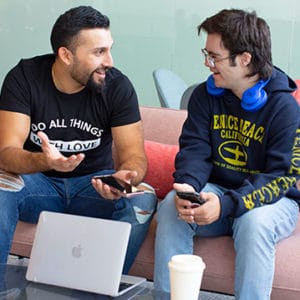 Going back to school can be a nerve-wracking time. Never mind the anticipation of new teachers or a daunting class schedule. Returning to the lunch room, the clubs, and the social spaces alone can cause just as much anxiety as actual academics. At Best Buddies, we’re always hopeful that this nervous energy can be eased by the knowledge that there is a whole club of people waiting to welcome you back and excited to spend time you, to sit with you at lunch, to help you with that hard math class you’ve got first semester.
Going back to school can be a nerve-wracking time. Never mind the anticipation of new teachers or a daunting class schedule. Returning to the lunch room, the clubs, and the social spaces alone can cause just as much anxiety as actual academics. At Best Buddies, we’re always hopeful that this nervous energy can be eased by the knowledge that there is a whole club of people waiting to welcome you back and excited to spend time you, to sit with you at lunch, to help you with that hard math class you’ve got first semester.
But to some, even joining Best Buddies can seem like a nerve-wracking, daunting experience. The number one question we get at Best Buddies this time of year is: how will I know enough about my buddy’s disability to be a good friend?
This question always makes us feel a little off. Yes, Best Buddies is an organization bringing together people with and without intellectual and developmental disabilities (IDD) to participate in friendship, learning, leadership development, job exploration – you name it, we probably do it together because our goal is to do typical things together. And honestly, that is really what we are all about. Believe it or not, we’re really not all about disability. We envision a world where it’s so normal for people with and without disabilities to do these typical things together, that we no longer need to exist as an organization. And frankly, what type of disability people have doesn’t really play in to how we develop friendships or what makes someone a good buddy. Disability diagnosis isn’t a part of how we build our friendships. So if you’re feeling daunted about joining this year because you’re not scientifically in the know about every disability, you need to take that out of your worry basket right now.
Let’s break it down this way. My dearest friend doesn’t like grapes. I do not understand how someone could not like grapes; I mean, what’s not to love? They’re sweet, crunchy, easy to snack on, come in convenient bunches… I digress. This is something that makes my friend unique. Would knowing this about her before we developed our friendship help me to be a better friend? No. Would it have helped me pick out activities for us to do together or helped me better understand how she’s interested in spending the weekend? No. I learned the stuff that make us true, close friends by spending time with her; by asking her questions and joining her on her adventures. As our friendship grew, I learned these idiosyncrasies about her through discussion and time; and that one piece about her that makes her different didn’t have any bearing on our friendship. Now I just know that when we are at potlucks together, I’ll be sure to eat all the grapes before she notices them on her plate. Which is fine by me.
When people ask us at Best Buddies about knowing the idiosyncrasies of a disability before they are matched with someone who has that disability, we feel this is only going to limit the friendship. In an interview on “Leading Perspectives on Disability” with Dr. Stephen Shore, he is famously quoted saying “if you’ve met one person with autism, you’ve met one person with autism.” Asked on this point, he shares that “this quote emphasizes that there is great diversity within the autism spectrum… just like the rest of humanity. Autism is an extension of the diversity found in the human gene pool.” He goes on to say that by looking at disability diagnosis in terms of an abilities-based model helps us to presume competence and ask what the person can do. This is incredibly important to the foundation of friendship-building in Best Buddies. We believe that knowing the medical background or terminology associated with a diagnosis isn’t going to help us understand if our friends love action movies or grilled cheese. A medical journal isn’t going to tell us if our new friends are afraid of clowns or love going to the rodeo. The only way we can learn these incredibly special things about our friends is through discussion and time – the very basis of relationship building.
At Best Buddies giving new friendships time and creating safe spaces for discussions are key to the building of a strong friendship. Would it have helped you when reading the information above to know that Dr. Shore has autism? Would it have helped you to know when you read about my friend who hates grapes that she has Down syndrome? No, I don’t think so. Each individual has so much to offer the world when they are given the space to share, communicate, and make connections. Dr. Shore is a brilliant professor known for his books, expertise, and advocacy, not his disability. My friend is known for her laugh and her great hugs (and honestly, the grape thing, because seriously, grapes are delicious), not her Down syndrome.
Now, don’t get me wrong. We know how important disability is to each person’s identity and we certainly don’t want to ignore that. As Kellie Howard, the Buddy Director at the University of Florida, shares, “it’s a tricky subject. Even with this topic, everyone will have a different answer because it’s so personal. That is why I think it’s best to ask your friend how they feel about this subject. It’s important to get to know someone on a deeper level, which can only happen if you ask people about the things they like, not just focusing on the disability.”
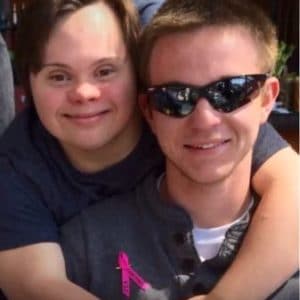 Sam Walford, a peer buddy from Memphis, Tennessee says that when he was first matched with his buddy, Timothy, “I was super nervous; I met him and I was freaking out. I didn’t know what to expect because I had never had any experience with people that have Down syndrome or anyone else with IDD.” But after getting to know “Big T,” as Timothy is called, he realized that their friendship is so much more than “how to be friends with someone with a disability” and more about the fun times they have together. Elizabeth Holloway, an advisor at Mary Persons High School in Georgia says that “so often people think they are doing something wrong.” But that’s why Best Buddies has a system of support. David Holland, an advisor from Rawlins High School in Wyoming shares that so many of his chapter’s participants “don’t understand how to interact with a person with a disability.” So he tells them that his door is always open. “Come talk to me so I can educate you on how to talk to this student.” Every Best Buddies chapter has an advisor that is there to support the friendships. The advisor typically works closely with the participants matched with IDD and can share any information specific to that person that will be relevant in how you build your friendship. There are resources on Best Buddies University, like our video on “How to be the Best Best Buddy” about people-first relationship building which can also help in making you feel prepared to develop a new friendship.
Sam Walford, a peer buddy from Memphis, Tennessee says that when he was first matched with his buddy, Timothy, “I was super nervous; I met him and I was freaking out. I didn’t know what to expect because I had never had any experience with people that have Down syndrome or anyone else with IDD.” But after getting to know “Big T,” as Timothy is called, he realized that their friendship is so much more than “how to be friends with someone with a disability” and more about the fun times they have together. Elizabeth Holloway, an advisor at Mary Persons High School in Georgia says that “so often people think they are doing something wrong.” But that’s why Best Buddies has a system of support. David Holland, an advisor from Rawlins High School in Wyoming shares that so many of his chapter’s participants “don’t understand how to interact with a person with a disability.” So he tells them that his door is always open. “Come talk to me so I can educate you on how to talk to this student.” Every Best Buddies chapter has an advisor that is there to support the friendships. The advisor typically works closely with the participants matched with IDD and can share any information specific to that person that will be relevant in how you build your friendship. There are resources on Best Buddies University, like our video on “How to be the Best Best Buddy” about people-first relationship building which can also help in making you feel prepared to develop a new friendship.
But most importantly, as the anxiety of the new school year creeps in, creating new friends are going to add to the butterflies of back-to-school. But I can promise you – as scary as joining a new club or making a new friend can be – the friendships that will come out of your experience in Best Buddies will be life-changing for the better. And maybe you’ll get the added bonus of being able to eat extra grapes whenever you go out with your buddy, too!
What do you think? Tell us about your experiences by commenting below or joining the conversation @BBUniversity on Facebook and Instagram!
